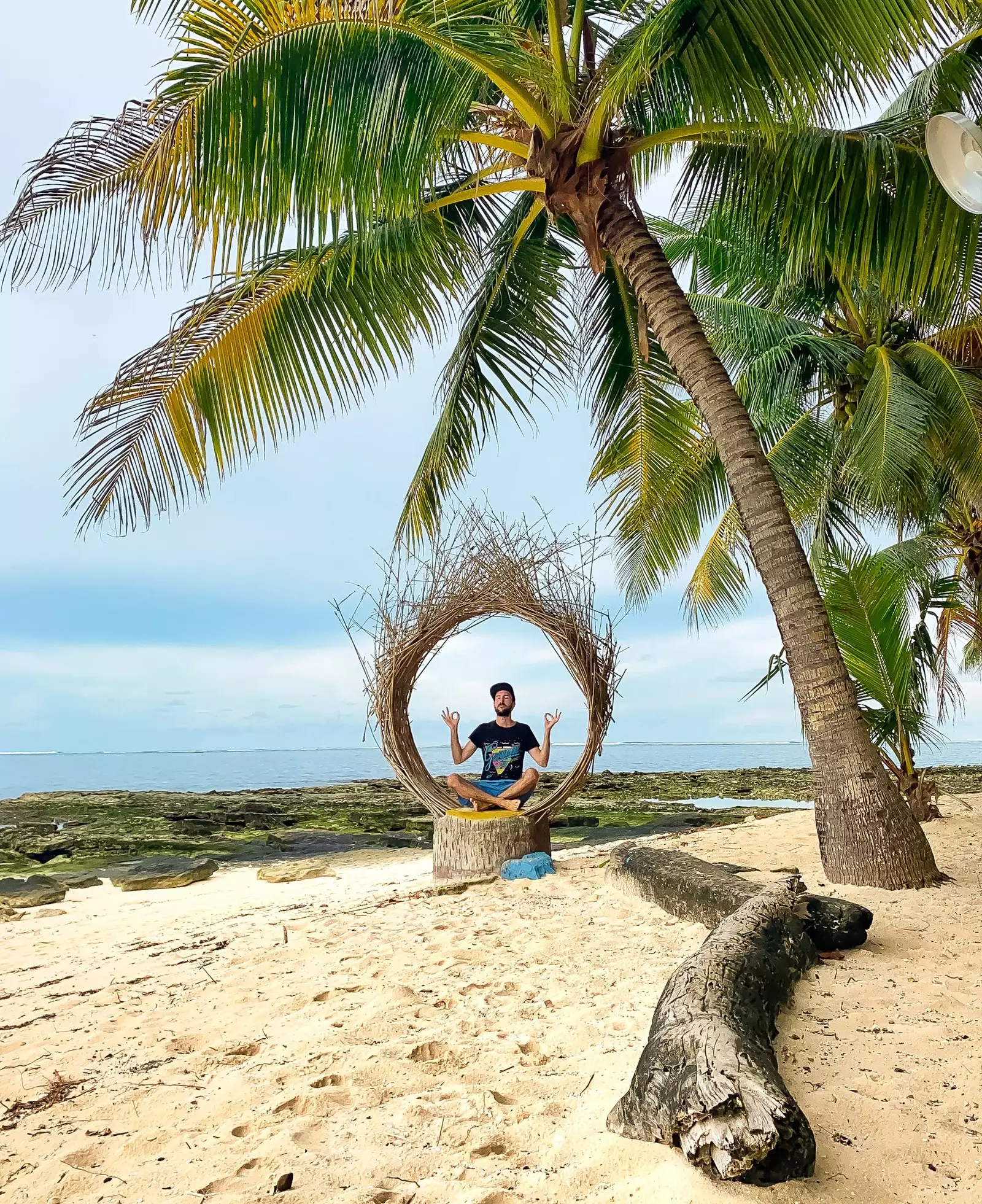
Adrian in Guyam Island, Siargao
Palm trees sway in the wind and the beach seems bluer than ever. Someone arrives with a cake and new friends gather around. Although his birthday is in April, on February 7 Adrián celebrates a year of "confinement" in the Philippines.
"It is a special date because this country means a lot to me," Adrián Esteban tells Traveler.es from Siargao , the Philippine island where he is currently and his home for much of this past year confined to paradise.
Adrián is a young man from Madrid who, like other travellers, was traveling in Asia between the end of 2019 and the beginning of 2020 until the WHO declared a state of alarm due to COVID-19.
“In November 2019 I decided to leave my beloved job and my happy life in Madrid to travel the world. I started by flying from Spain to Bangkok, where I spent three weeks in various parts of Thailand; then Vietnam for two months and, Finally, I arrived in the Philippines, where I traveled for a month in a normal way exploring islands such as Palawan, Bohol or Siquijor”, continues Adrián.
“But in mid-March, the restrictions started when the Philippine president ordered a ban on all transportation and I had to stay.”
The confinement caught Adrián on the island of Malapascua: “I decided that this island could be a good place to be safe and get through this situation, although there were also questions about whether food and resources could arrive, along with the concern that the nearest hospital was on another island quite a distance away. Finally it was a wise decision and I never imagined that I would be in Malapascua for 6 months”.
After the decrease in cases, they began to offer repatriation flights, but Adrián decided to stay. He provided the necessary documentation and took a COVID-19 test to be able to move to the island of Siargao, a surfing mecca in the Philippines where these months he has set his base point: "I feel that I am privileged to be here and have time available to dedicate it to what I most desire."
During these months, Adrián has invested his time in add content to his Instagram account, explore the island on a motorcycle or even dare to master his first waves with a surfboard on beaches orphaned by tourists: "If this place was already paradisiacal, now it is even more so."
Climb palm trees, dive or even celebrate new birthdays with friends without fear of capacity. One only has to take a look at Adrián's social networks to realize that he doesn't need a volleyball named Wilson to survive. Nor to return: "At the moment I have no plans to return to Spain, at the time I did not follow my instinct, and it seems that I was right."
READ: *LOST IN TAIWAN*
Palm trees and pristine beaches aren't the first things that come to mind when we think of Taiwan, but for Lea it was the perfect definition of paradise. Originally from Argentina, this traveler experienced a serendipity with the Chinese state shortly before the state of alarm and she decided to stay.
“I was flying from California to Thailand and I made a stopover in Taipei: it seemed like a wonderful city and I got my visa,” she tells Lea a Traveler.es.
“The state of alarm caught me in Taichung, a city in central Taiwan. Luckily, I was isolated in one of the most effective countries in containing the virus, although people were afraid.”
During her accidental crush on Taiwan, Lea she volunteered as an English and yoga teacher, and even in rice fields, where the tension was beginning to be felt: “We lived in a tiny house with many people and we all started to get paranoid even though there were no cases.”
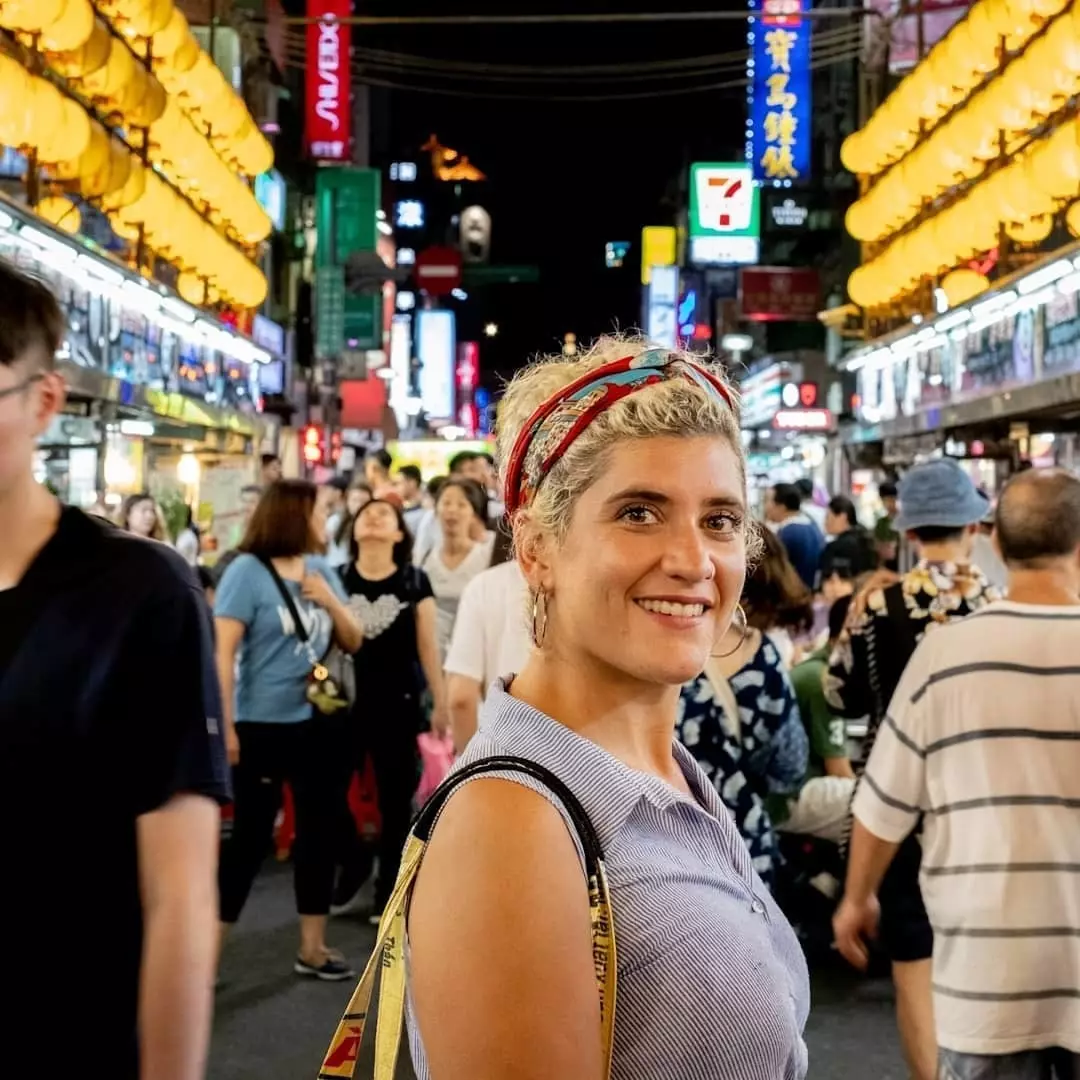
Read: 'Lost in Taiwan'
To the situation of being a castaway in the midst of a pandemic, the lack of money was added: “They canceled the flights and the few that there were were very expensive and with many scales. The world was not a safe place and it was better to stay, but Taiwan was only issuing tourist visas every 30 days and the money was running out." tells Lea, who with the help of an Italian friend used the nets as a rescue weapon.
“I was volunteering at a hostel and I set up a Facebook page for all the expats to ask for help. I felt alone and we didn't know anything, but I managed to gather 1000 people to support us and to be able to work during the lockdown. We even got on local TV.”
Lea followed the basic health standards imposed by the state during the four months that she remained in isolation. When the situation improved and she knew she could get out of it, she hitchhiked across Taiwan all the way around the island to Taipei. “We toured it in 5 days and found wonderful people. Taiwanese are very fearful, but they are very sweet and very innocent people.”
The 360-degree turn came when she had to return from one of the least affected countries to the Antipodes of the pandemic: the United States. "It was like going from 0 to 100," she admits. "From hiking through the mountains to return to the country most affected by the virus."
Today, Lea hopes to be able to go on a road trip when the situation improves and re-experience the freedom of her last days in Taiwan.
CHARLY SINEWAN: SOUTH, SOUTH
Seen today, those days of March 2020 seemed more naive to us, with rumors in the form of fake news or conclusions that are not as clear as the seasonal nature of the bug.
“When they said that the virus did not appear as much where it was hot, I took the motorcycle with a shotgun and headed to the south of Mexico,” recalls Carlos García Portal, better known as Charly Sinewan, traveler and biker whose singular name has more crumb than he seems.
“Blame Ewan McGregor when he put out the documentary series Long Way Round, in which he traveled the world on a motorcycle with his partner, Charley Boorman. Over time I also went on a motorcycle, but Sinewan ”, he narrates from Mexico.
Charly Sinewan has a channel on YouTube that today accumulates 696,000 subscribers, in addition to another 164,000 followers on his account on Instagram, where he reveals the stages of his motorcycle trips through more than 60 countries.
The one he was doing in March 2020 caught him in Mexico. “I was in San Cristóbal de las Casas, in Chiapas, and I went to Oaxaca. I spent the pandemic there and then linked to the Caribbean, but always without leaving Mexico, ”he continues.
Charly traveled 700 kilometers in record time on his motorcycle to Huatulco, facing the Pacific Ocean, where he rented a shared house with two rooms.
If the pandemic caught him somewhere, let him be in that paradise of golden sunsets. During the following months, He continued working on his YouTube channel from his shelter and alternated his stay with different trips around the country.
Charly believes that the reading of the pandemic is not very positive, but he feels lucky that all his loved ones are well, even if it sounds bad to say so.
In fact, at the end of 2020, Charly returned to Spain to make an express visit to his family and then return to Mexico. "I didn't really go back to Spain or Mexico," he corrects. "It's the thing about not having a home."
SUSANA: SEVEN MONTHS TRAPPED BETWEEN A THOUSAND PALM TREES
Driver at the EMT in Valencia and heart of the Solidarity on Wheels project, Susana Hernández is used to traveling the world cooperating with different causes.
In early 2020 she was doing reconstruction work in Fiji when a merchant ship took her to Funafuti, the main of the eight islands of the Pacific archipelago of Tuvalu, where she would spend seven months locked up without knowing it. “‘Tu’ is a group and ‘Valu’ is eight”, Susana tells Traveler.es. "I've even had time to learn Polynesian."
Tuvalu is not only the first victim of climate change given its low altitude, but also one of the least touristic destinations in the world: "She was the only traveler there, so no one was in a hurry to get out except me."
In Tuvalu, the borders were closed despite the absence of evidence of the virus, giving rise to situations, to say the least, curious: “Only two people could enter a small store without a mask and go out to join you again with all the rest in a circle.”
Fear lurked on the Funafuti atoll, as only 6,320 inhabitants live spread over a strip of land 14 kilometers long.
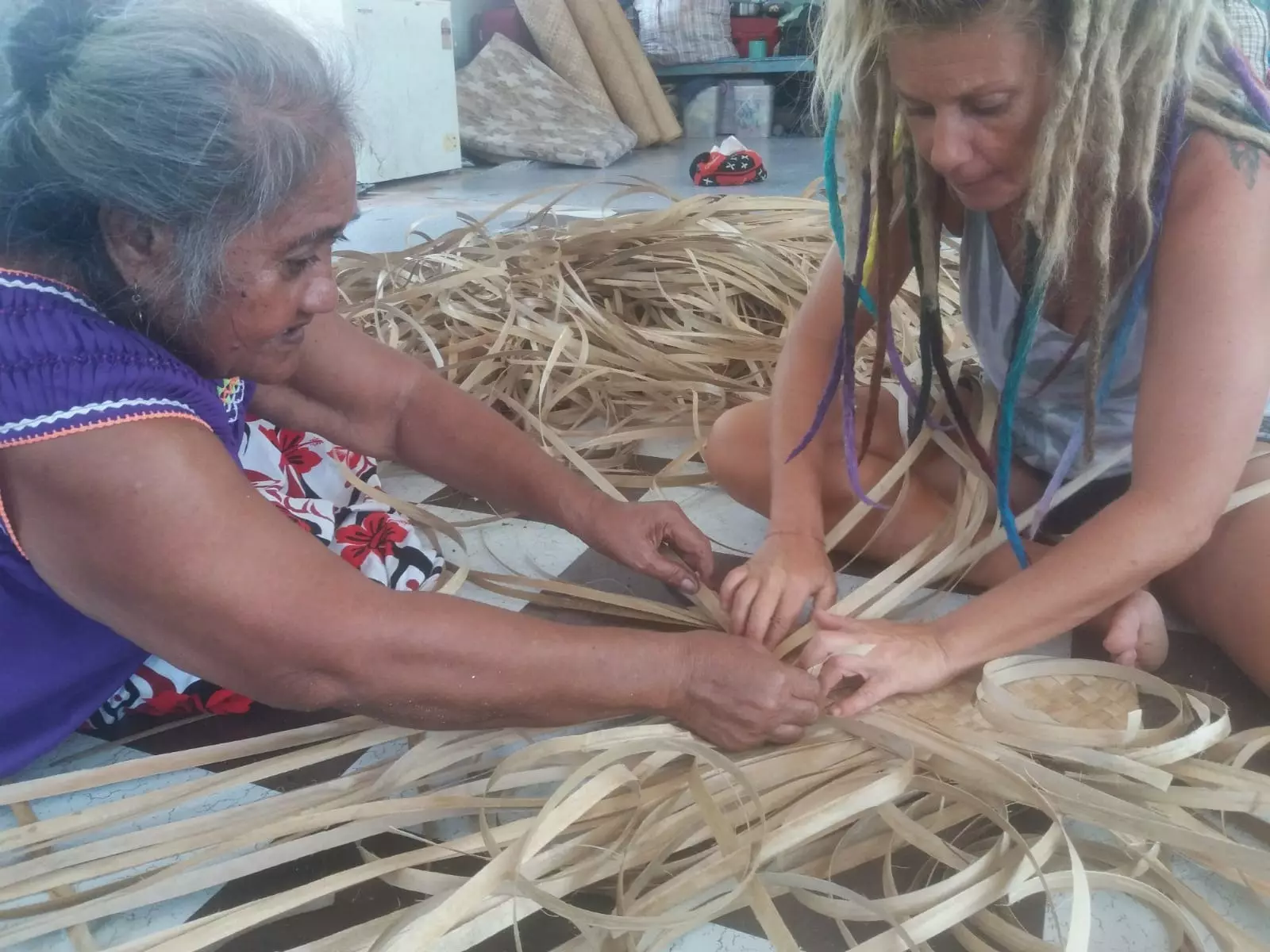
"I learned to weave with palm leaves, practiced yoga, played with the children, read, played the ukulele and swam in crystal clear beaches"
“A large part of the population is diabetic and overweight due to their sedentary lifestyle and eating habits. , since the main food is rice and fish along with the toddy, a sweet sap that they extract from the palm trees and the pulaka, a tuber rich in carbohydrates that is cooked with sugar”, says Susana.
Diabetics are considered a population at risk. and they were aware that a single person with COVID-19 could wipe out the entire atoll.”
Susana acknowledges that the population of Tuvalu is very welcoming and familiar, but the tropics as a prison is also a double-edged sword: "Here in Spain people were locked up within four walls and I was in paradise, so I felt lucky even privileged but being confined to a piece of land in the middle of the Pacific can also be hell, both resource-wise and physically and emotionally. There came a time when an energy of collective laziness reigned on the island that trapped you if you were not attentive.”
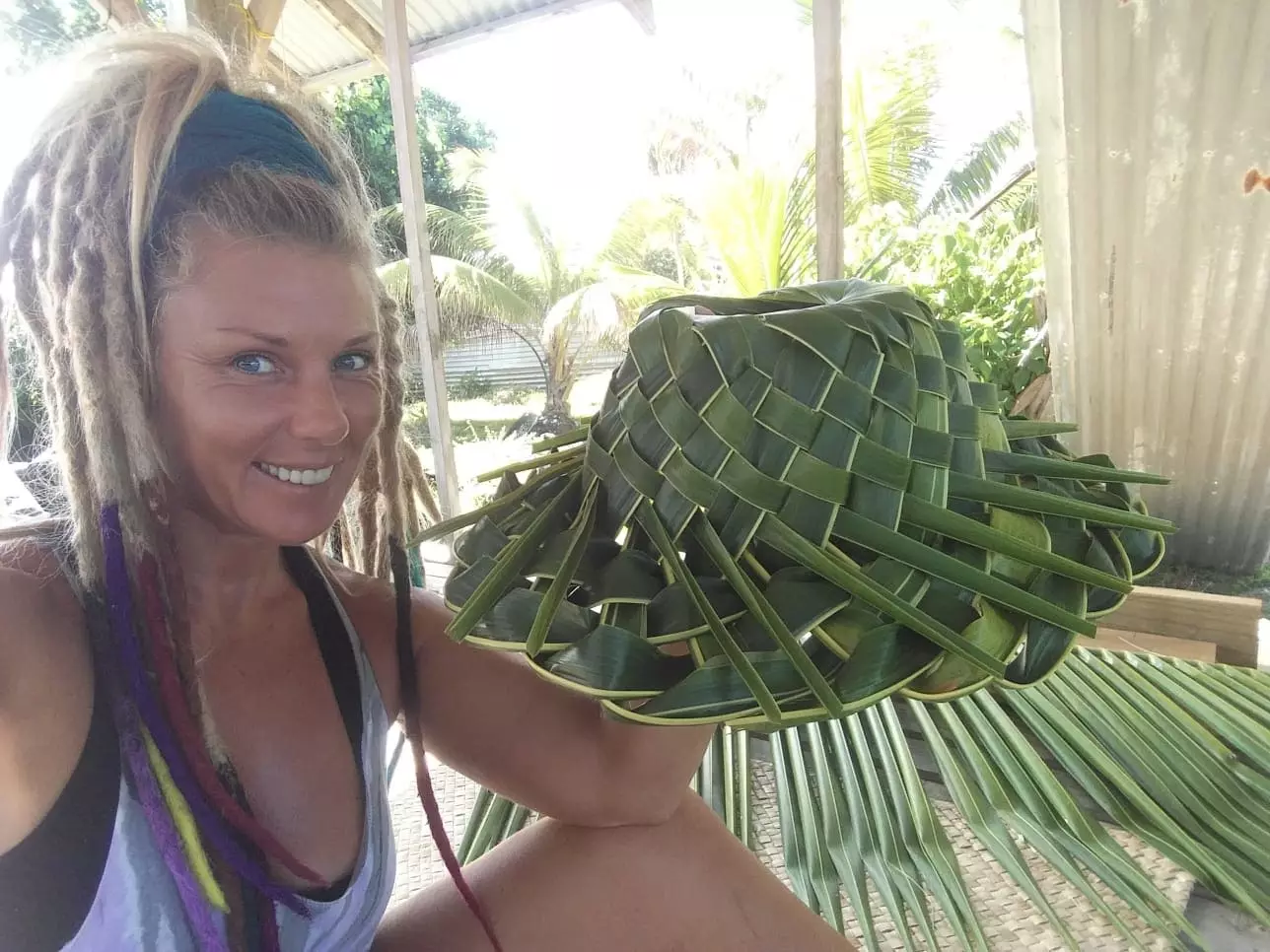
Susana spent seven months on the Funafuti atoll, the main of the eight islands of the Tuvalu archipelago.
During her seven months of confinement, Susana made every effort to return to Spain while she tried to connect with her loved ones: "There was a building in the center of the island with a control tower as the only way to connect, but when a cyclone came we were without Internet for days."
Susana was not given any specific date, everything was long and remote possibilities due to the country's isolation. “In principle until August, they told me. So I tried to live day by day and seize the moment: I learned to weave with palm leaves, I practiced yoga, I played with the children, I read, I played the ukulele and I swam in crystal clear beaches. We cannot change what happens and we only have control over our attitude to circumstances. But it took me a while to get to that point.”
Finally, the government of Tuvalu gave him a cable. After taking a weekly flight to Fiji, a military truck escorted her to the quarantine hotel. Days after she took a non-commercial flight from Fiji to Auckland, New Zealand, with a special visa to stay a maximum of 12 hours at the airport.
In the end, she contacted an agency that managed to process her a flight with a stopover in Hong Kong and another in Switzerland. Three days later, she landed in Madrid.
After returning to Valencia, she began another phase, that of assimilation: “It's funny how when you're forced to be in a place, you want to get out. The emotions were contradictory and difficult to manage.” Reflections that Susana manages today from the perspective of the facts. Although if you ask her if she would go back to Tuvalu right now, her answer is clear: “Of course”.
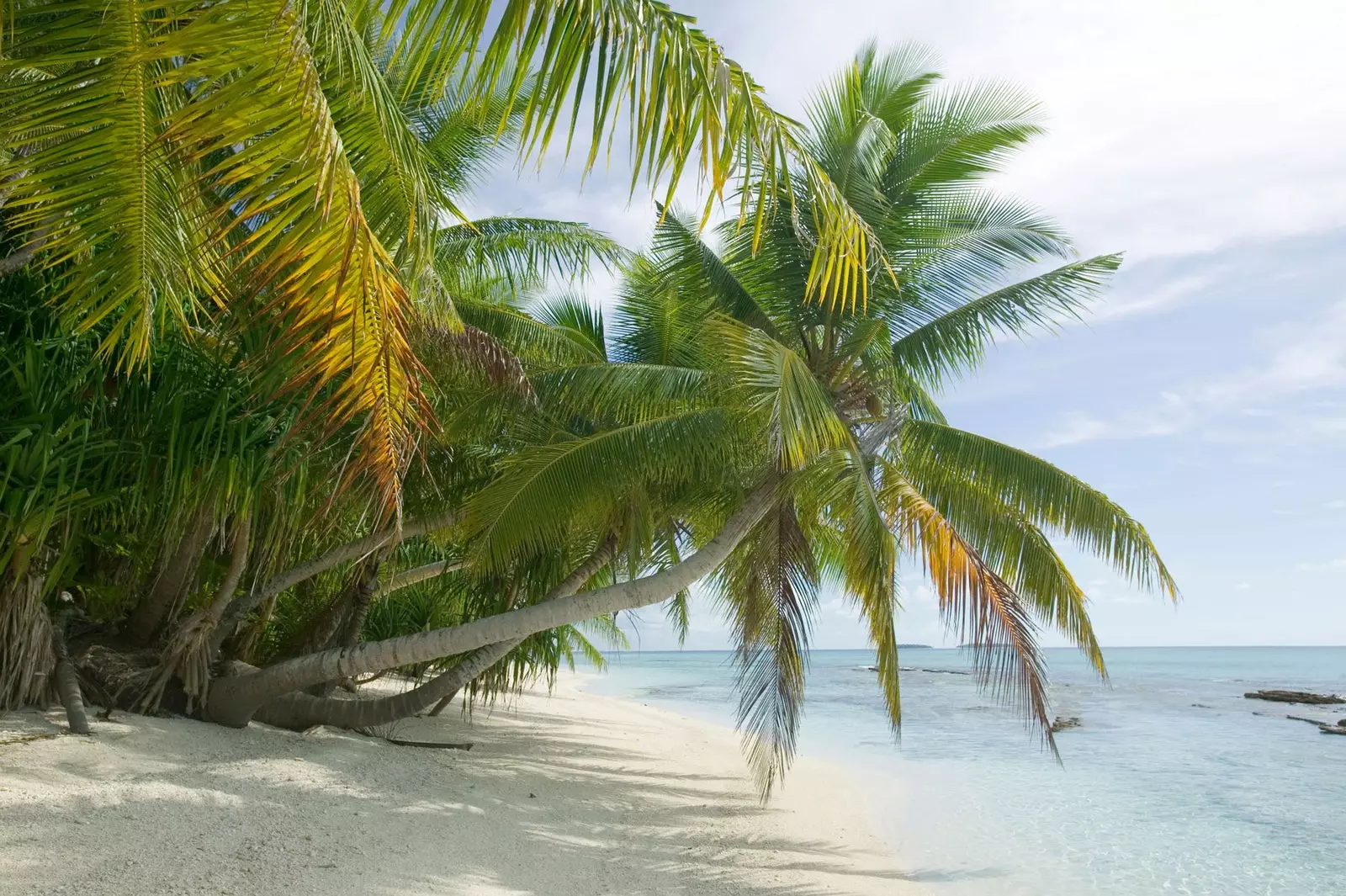
Tuvaluan
